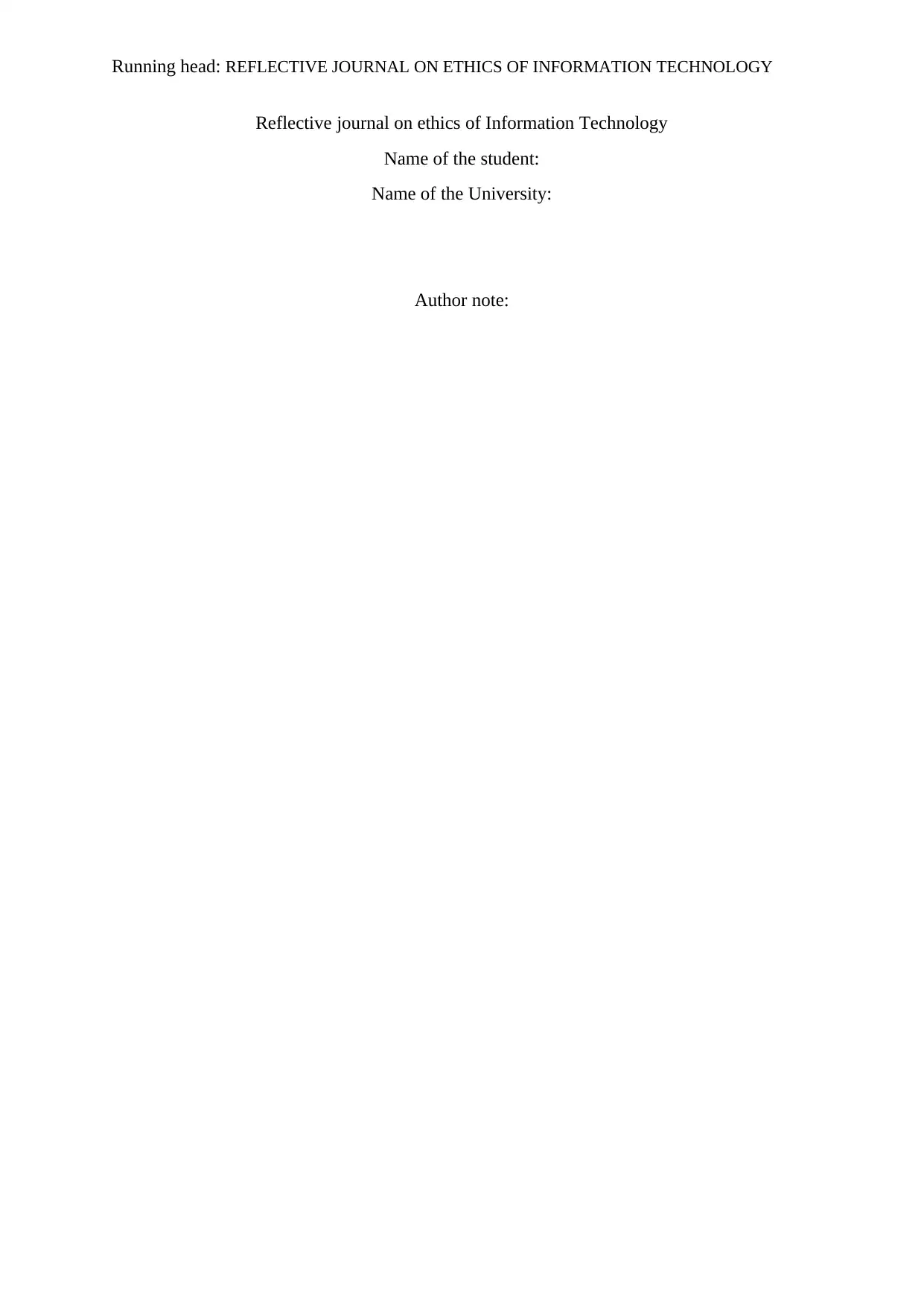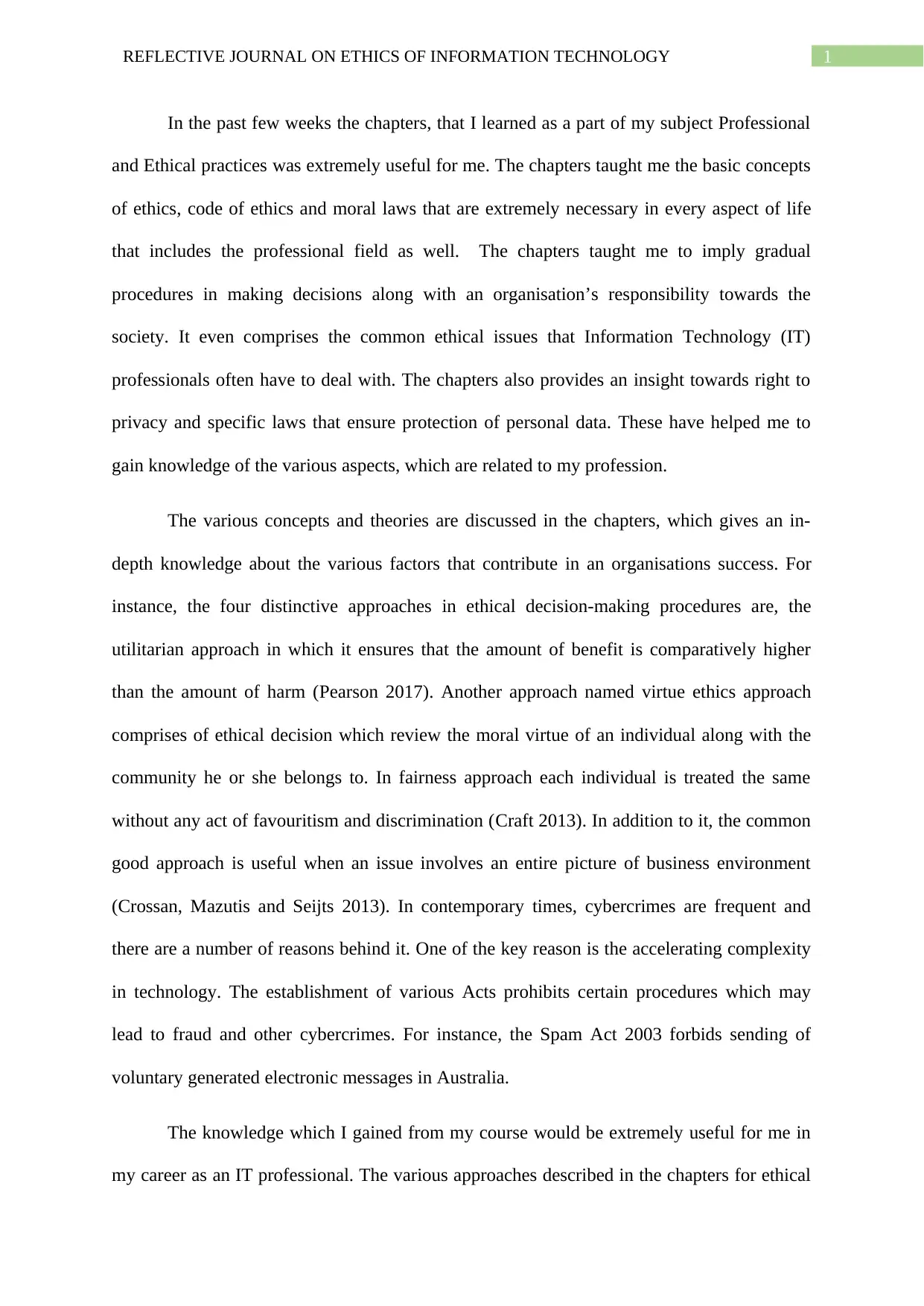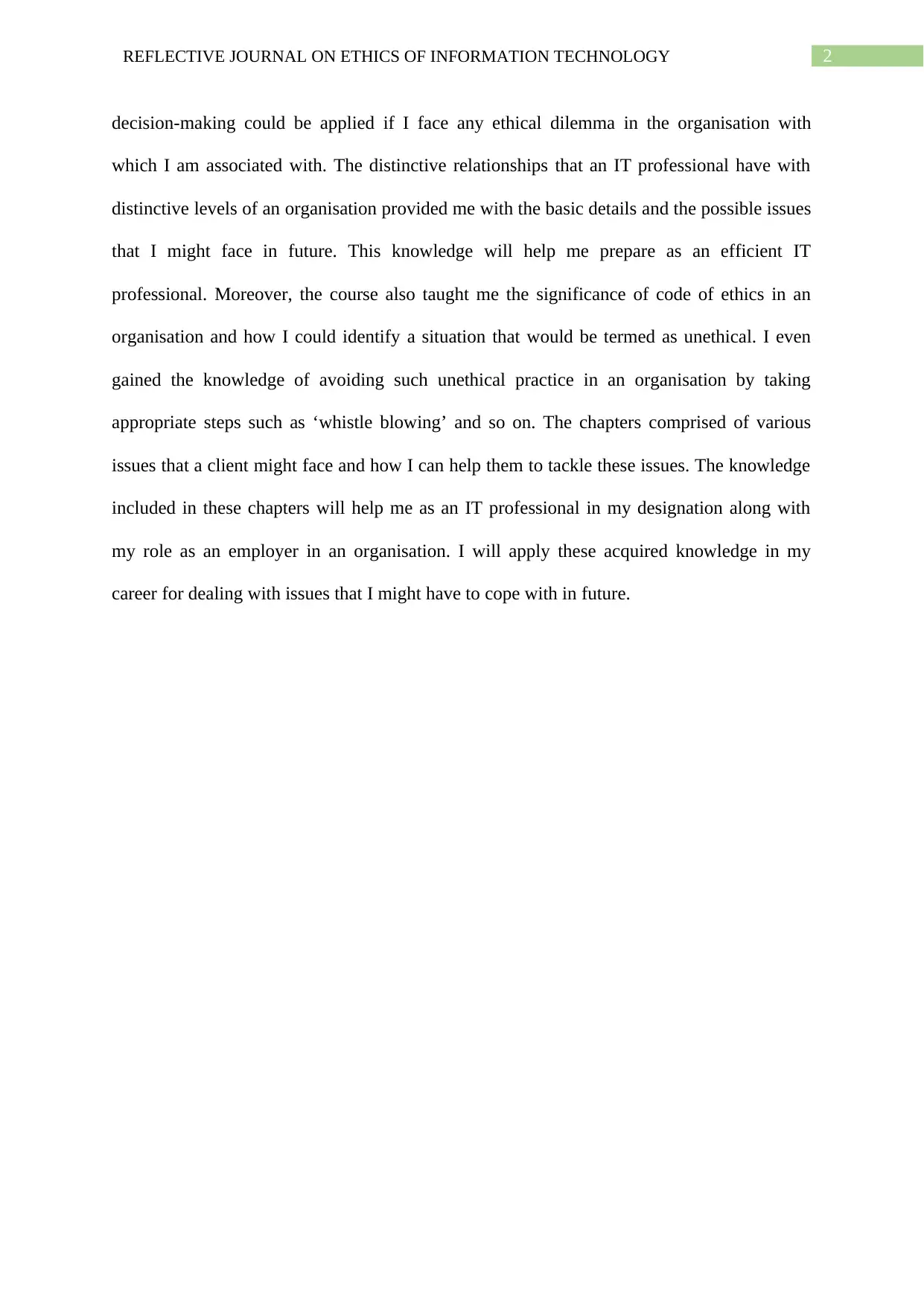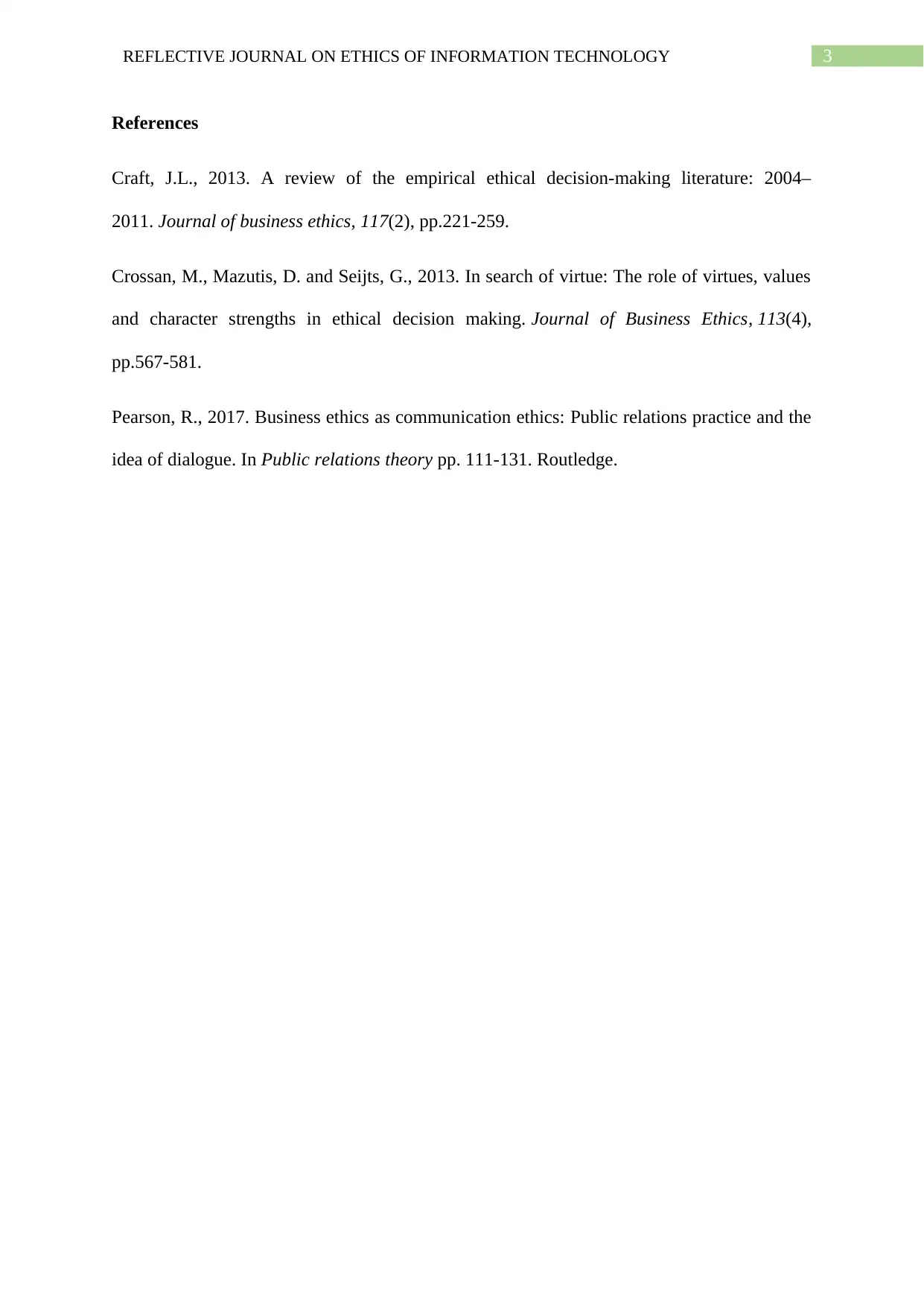Reflective Journal: Ethics of Information Technology - Semester 1
VerifiedAdded on 2023/06/10
|4
|731
|324
Journal and Reflective Writing
AI Summary
This reflective journal reflects on the student's learning experience in a Professional and Ethical Practices course, focusing on the ethics of Information Technology (IT). The journal highlights key concepts such as ethical decision-making frameworks (utilitarian, virtue ethics, fairness, and common good approaches), code of ethics, and moral laws. It discusses the increasing complexity of technology and the rise of cybercrimes, along with relevant legislation like the Spam Act 2003. The student emphasizes the practical application of this knowledge in their future career as an IT professional, including handling ethical dilemmas, understanding the relationships between IT professionals and organizations, and identifying and avoiding unethical practices, such as whistleblowing. The journal also covers the importance of client interactions and the application of ethical principles in various roles within an organization.
1 out of 4










![[object Object]](/_next/static/media/star-bottom.7253800d.svg)